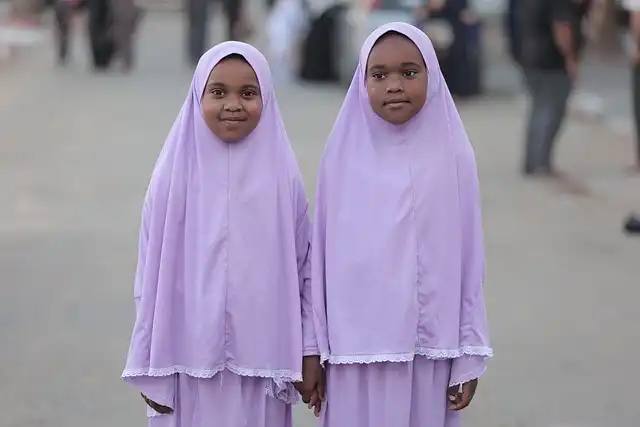El Akkad on Gaza: Colonialism, Violence, and Resistance

Omar El Akkad's work examines violence in Gaza, linking it to colonialism and commercialism. He urges resistance and criticizes the West's role, advocating for collective action to stop impending disasters. #Gaza #Colonialism
It could be hard in the beginning, however we will certainly learn that “possibly it’s not all that much trouble to avoid getting coffee and downloading applications and purchasing chocolate-flavored hummus from companies that follow slaughter”.
Commercialism and Systematic Violence
Like Wells, El Akkad links systematic physical violence to the structures that underpin the contemporary globe. Chief amongst them is commercialism. Genuine modification, he suggests, will certainly come when enough people, to make use of the old 1960s parlance, “leave”, though he chooses “negation”, a word that suggests there is something to resist.
Resisting the Violence in Gaza
As identifying the problem, El Akkad surveys and reviews modes of resisting what is taking place in Gaza. He disposes of as ineffective the old appeal to westerners’ self-involvement. Mentioning that horrors they allow elsewhere will at some point come for them just doesn’t work.
The fixing activity El Akkad proposes prevails negation, or “leaving”. People, en masse, need to contradict that the meagre guarantees of the much less conventional political celebrations are the very best choices available.
The Acceptance of Mass Fatality
Making this case, El Akkad states, hinges on a quiet acceptance to mass fatality. He calls this a “hesitant acceptance of genocide” and asks liberals in the USA (and by effects in various other western freedoms) to examine their consciences.
Both Wells and El Akkad show how sufferers of racist and early american physical violence are cast as already guilty. With lynching, the pretense was commonly an allegation of rape, though that was rarely the actual spark. Much more common were conflicts in between men over land, pay, labour organising, organization competition or ballot drives.
Framing Colonial Violence
As someone whose moms and dads moved to the west for the possibilities and freedoms it would certainly afford their kids, El Akkad has a severe sense of the past occasions, ideas and frameworks that have shaped today. He pays keen focus to the heritages of colonial policy.
Demonstrating to the atrocities and the gutless feedbacks, El Akkad reminds liberal readers that if Gaza had occurred in the past, they would condemn the violence. What’s more, they would visualize that, had they lived at the time, they would certainly have securely stood up to the incorrect and even taken a brave position against it.
Call to Collective Action
Doing so might simply stop a genocide. In time, this type of cumulative action could also quit various other impending disasters, not least climate collapse. El Akkad’s constant emphasis throughout the book on the death, incapacitating and immeasurable psychic injury to the youngsters of Gaza makes that situation really feel urgent.
El Akkad could ask what children you had in mind when you flinched from his diagnosis and diagnosis if that sounds hyperbolic. Your answer likely turns on the place, colour and wide range of the children you have in mind. Youngsters in Tuvalu, for example, recognize he is not overemphasizing.
Clare Corbould does not benefit, seek advice from, very own shares in or receive financing from any kind of company or company that would gain from this article, and has disclosed no relevant affiliations beyond their scholastic appointment.
This will need sacrifices. El Akkad offers examples of individuals he admires: the author who declined a reward from an organisation that had been quiet regarding Gaza; the educator brave sufficient to chat with teenage students regarding the intolerable rate of children and private citizens (not “noncombatants”) dying. The majority of starkly, he composes of Aaron Bushnell, the United States Flying force professional, whose last words before setting himself ablaze outside the Israeli embassy in Washington D.C. were “complimentary Palestine”.
Omar El Akkad does not want you to avert. An acclaimed journalist and novelist, El Akkad was birthed in Egypt, lived as a teenager in Qatar and Canada, and migrated as a grown-up to the United States, where he currently lives with his household in the Pacific Northwest.
His function is akin to several well known witnesses in background. Contemporaneous declarations regarding physical violence often offer later as statement in identifying what happened, that was accountable, and what repayment is due.
El Akkad likewise pays close attention the method the physical violence in Gaza is framed and explained. Both Wells and El Akkad show exactly how victims of colonial and racist violence are cast as already guilty. El Akkad supplies instances of people he appreciates: the writer who refused a reward from an organisation that had been silent regarding Gaza; the teacher brave sufficient to chat with adolescent pupils about the unbearable rate of children and civilians (not “noncombatants”) dying. El Akkad’s constant focus throughout the book on the fatality, maiming and countless psychic injury to the kids of Gaza makes that situation really feel urgent.
I read an op-ed in which an author suggests that the version for Palestinian-Israeli conjunction is something like Canada’s contemporary partnership with the Native population, and I marvel at the laid-back, evident, yet unstated effect: that there is an Indigenous population being colonized, yet that we need to allow this unpleasantness run its training course so we can get to real justice in the kind of land acknowledgments at every Tel Aviv verse analysis.
His essays were composed in between the Hamas strike on Israel on October 7, 2023, and August 2024, when the United States presidential campaign remained in full swing. Much of his power mosts likely to dealing with the “lesser of two evils” debate concerning ballot in a democracy where the alternatives are much ideal and, at the majority of, centre-a-bit-left. Only from a fairly protected position, he observes, might one vote for the Democratic Celebration because the other side “would be so much worse”.
Much less widely known to Australian visitors might be American journalist Ida B. Wells, yet El Akkad’s fire and fury likewise brought her to mind. In the 1890s, Wells very assaulted lynching in her own newspaper, the Memphis Free Speech. She investigated details instances of ritualised crowd physical violence.
Media’s Role in Gaza Violence
In the case of Gaza, the media simulates the cases of Israeli politicians, its military and allies of both. They all cast civilians as terrorists or terrorists-in-waiting, even kids. The words clean up the consciences of sightseers. They launder harm as if it were cash money.
If that sounds hyperbolic, El Akkad may ask what kids you had in mind when you flinched from his medical diagnosis and diagnosis.
El Akkad additionally pays attention the way the physical violence in Gaza is mounted and explained. He observes exactly how reporters make use of the passive voice, which not only hides the names of killers yet suggests mass death happened by mishap or magic. “Palestinian Reporter Struck in Head by Bullet Throughout Raid on Terror Suspect’s Home,” reviewed one Guardian heading, he keeps in mind.
1 colonial violence2 Gaza
3 mass fatality
4 Omar El Akkad
5 political resistance
6 western freedoms
« Instagram Influencer: Fame, Struggles, and Self-DiscoveryFrank Meyer: Communism, Conservatism, and Political Ironies »
